March Deficit Unexpectedly Drops to Five-Year Low Due to DOGE's Decisive Blow to Democratic Party's Money Laundering Plan
A month ago, when examining the latest fiscal data from the U.S. Treasury Department, we discovered a shocking fact: the Biden administration's spending in recent months was unprecedented—with expenditures in the first six months of fiscal year 2025 even exceeding the crisis periods of 2020 and 2021 when trillions of dollars were injected into the economy.
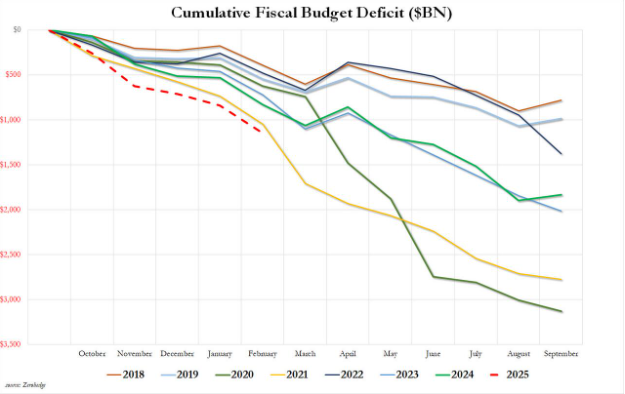
Until Elon Musk's DOGE entered the scene... the situation quickly reversed.
The March fiscal report published by the Treasury Department this morning (the first month of DOGE's full-scale operation) revealed intriguing results. As shown in the chart, the U.S. government's total revenue in March was $368 billion, with total expenditures at $528 billion.
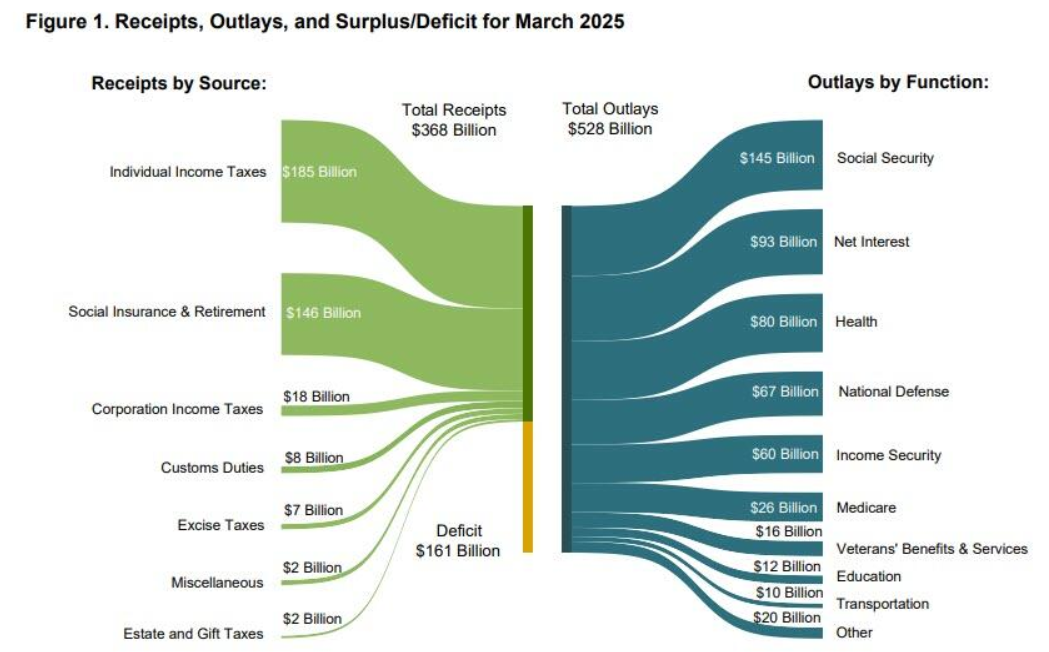
After offsetting income and expenses, the March budget deficit was $161 billion. While this figure seems large (and it is), the situation changes when you realize that February's deficit was $307 billion (nearly twice that of March). Compared to the $236 billion deficit in March 2024, the 2025 deficit dropped significantly by 32%.
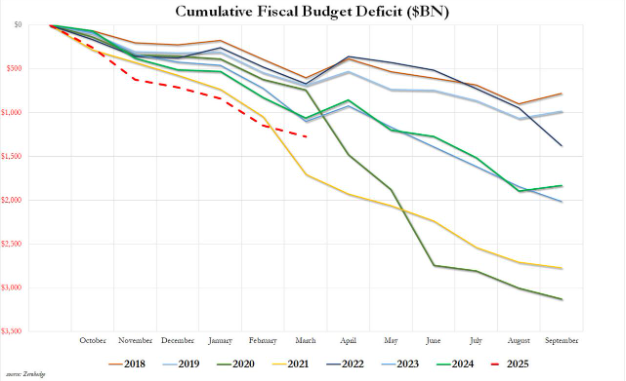
What's the reason? First, fiscal revenue increased by 10.7% year-on-year to $367.6 billion—which is certainly encouraging. But more critically, traditional "expenditure" actually decreased by 7.1% to $528.2 billion.
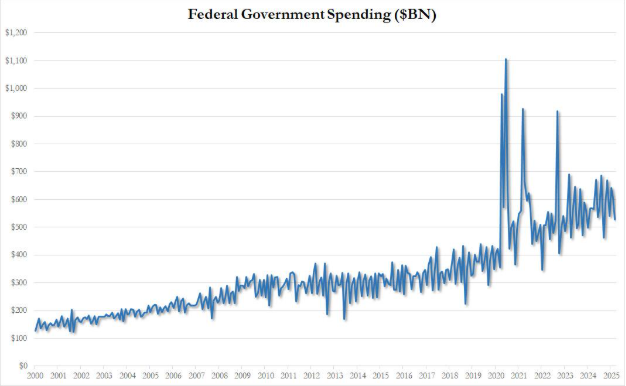
This is precisely DOGE's credit.
Although various mandatory expenditures continue to grow slowly (as these require congressional legislation to revise), the "income security" item saw a stunning $45 billion drop—plummeting from $105 billion in February to $60 billion in March, marking the largest single-month decline since June 2021. The massive fraudulent fund flow network established by Democrats (disguised as "income security" to conceal decades of corruption) was completely dismantled by Elon—essentially a giant black money pool used for embezzlement, corruption, bribery, and buying left-wing media narrative direction.
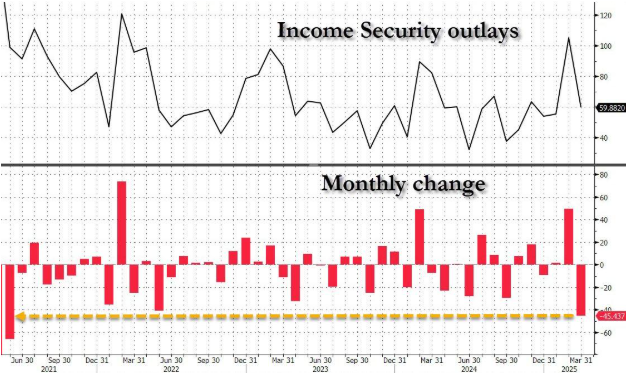
The final result: March U.S. deficit hit a new low since before the 2020 pandemic outbreak, dropping $76 billion compared to the same period last year.
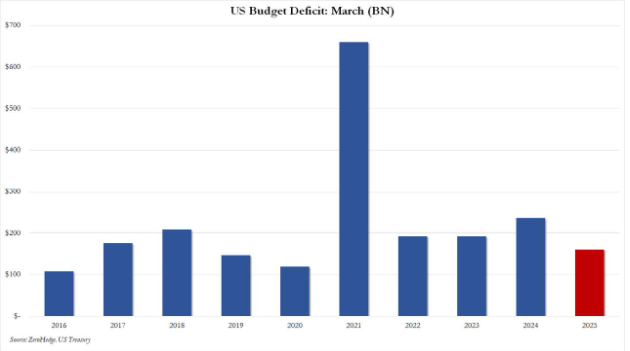
This is good news. The concern is that despite the sharp March deficit reduction, the long-term income and expenditure trend line remains unsustainable.
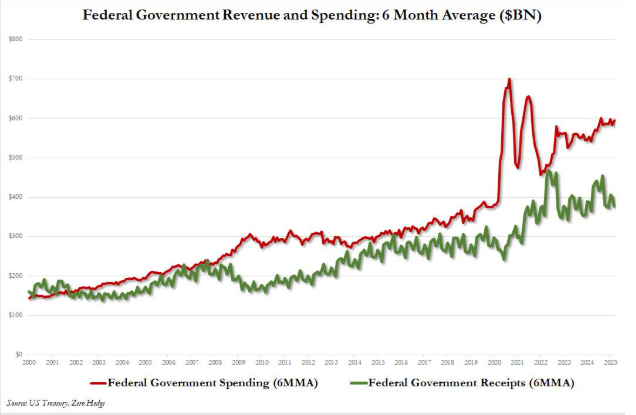
Another perspective shows: the blue line (income security) has indeed fallen, but other items continue to rise...
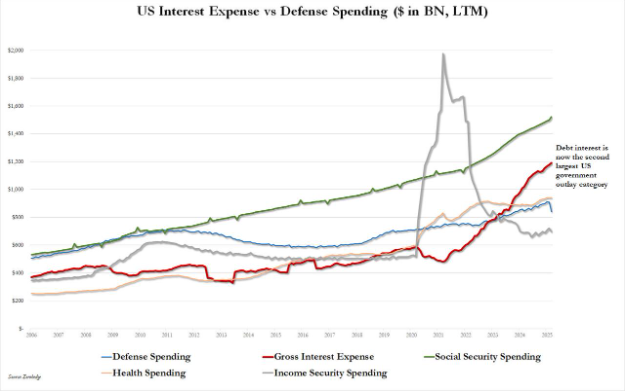
...especially interest expenditures: by December 2024, at the end of the Biden administration, the rolling annual interest expenditure hit a historic high of $1.124 trillion, more than doubling since the first quarter of 2021 when Biden took office.
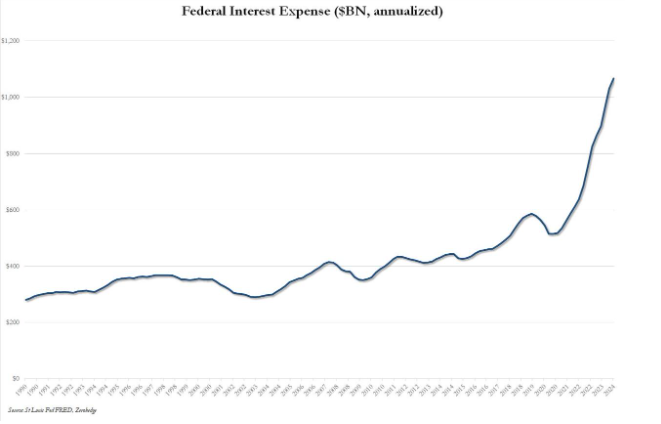
Core conclusion: Although March marked the first time we witnessed DOGE's significant effectiveness in curbing budget expansion, the government efficiency sector faces a Sisyphean challenge that has just begun. Despite the $45 billion reduction in the "income security" item and the impressive $76 billion annual deficit drop, it is merely a drop in the ocean for the United States' unsustainable fiscal trajectory. If Trump, Musk, DOGE, and most Americans truly wish to reshape the U.S. balance sheet, more arduous work—as recently hinted—and more intense growing pains are sure to follow.







